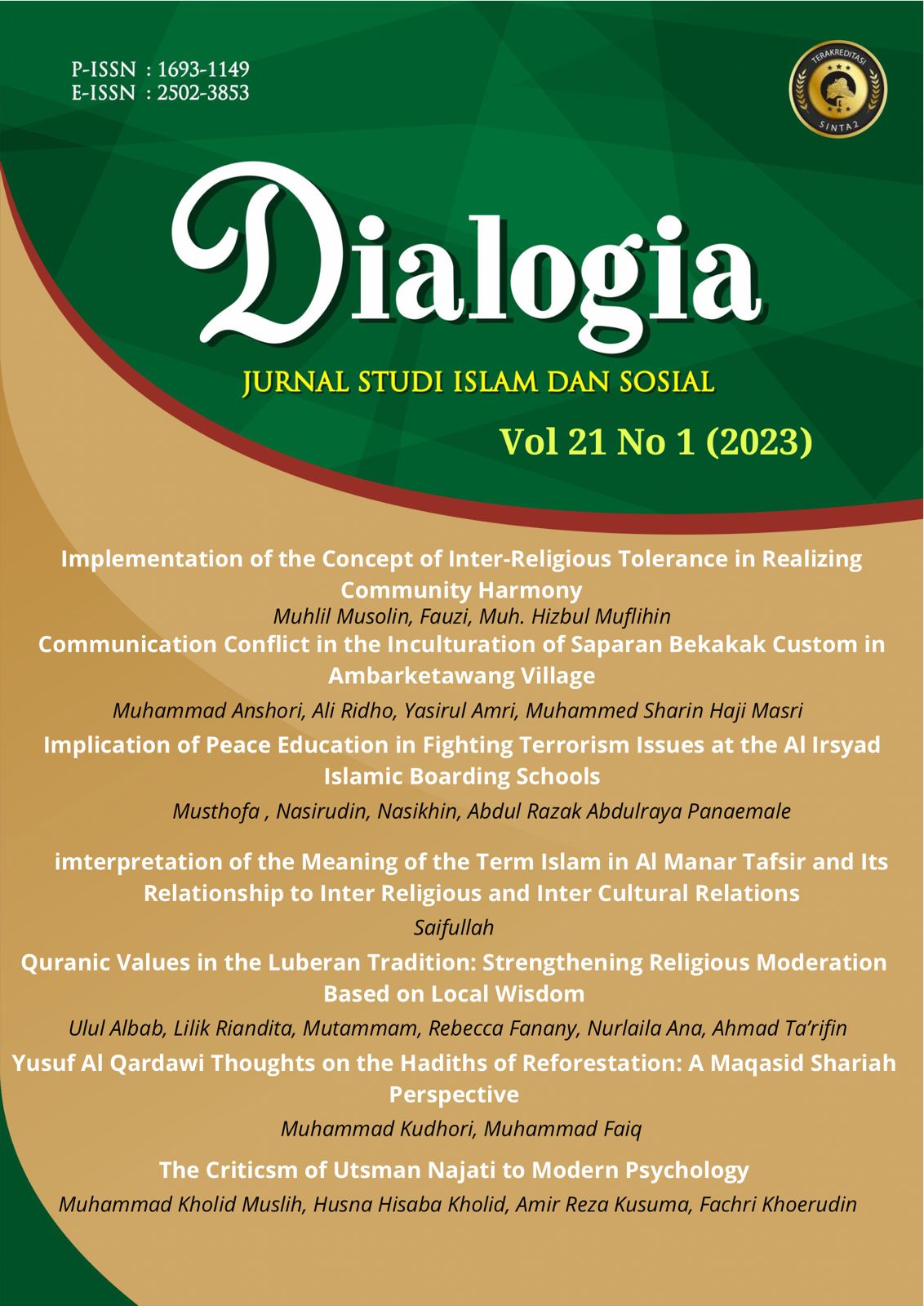Implications of Peace Education in Fighting Terrorism Issues at the Al-Irsyad Islamic Boarding Schools
DOI:
https://doi.org/10.21154/dialogia.v21i1.5915Keywords:
Peace Education, Islamic Boarding School, TerrorismAbstract
The accusation of Islamic boarding schools as hotbeds of terrorism is still a phenomenal issue. This is contrary to the values of Islamic boarding schools which uphold peace. This study aims to narrate the implications of peace education in Islamic boarding schools in responding to the issue of terrorism. Data were collected through in-depth interviews, observations, and documentation studies to be analyzed using Miles and Huberman's model. This research shows: (1) Teaching materials (textbooks) and Al-Irsyad Islamic Boarding School regulations direct students to an ideology that is highly anti-terrorism, this data is taken from the description of the responses that researchers see from the side of perception with convincing statements that peace is a nature that must be attempted, either with a theological or rational approach. This response was strengthened by the views of the management and students who stated that peace is a common property so that all acts of terrorism are not part of Jihad. (2) Santri's response to terrorism has implications for strengthening social solidarity, building tasamuh attitudes, establishing mutual assistance, being fair and wise, and understanding diversity. The second result contributes to fighting accusations of Islamic boarding schools as hotbeds of terrorism, while simultaneously confirming that peace education in Islamic boarding schools can be used as a model for public schools in fighting terrorism issues.











